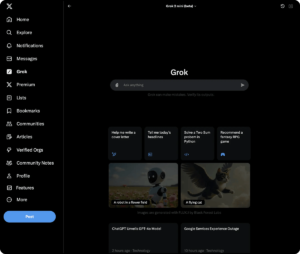Impact on 40 Million Users in Africa

Elon Musk’s Acquisition of X: Implications for African Users
On March 28, Elon Musk’s AI company xAI completed the acquisition of X, previously known as Twitter. This move raises serious questions regarding the privacy of the platform’s 40 million users in Africa, who will now have their data used to develop AI systems like Grok without prior consent or compensation.
Data Privacy Concerns
The acquisition of X puts users from Nigeria (10 million), South Africa (8 million), and Morocco (21.2 million) in a challenging ethical position. According to Stéphane Madrange, the CEO of Médiane Système, “Your tweets, photos, messages… become the fuel for Musk’s AI models. No opt-in, no compensation.” This indicates that personal data from millions of users could be utilized without their knowledge or benefit.
Fragmented Regulatory Landscape
Africa’s legal framework regarding data protection is inconsistent, with only 37 out of 54 nations having in place comprehensive privacy laws. The lack of technical and financial resources among local regulators makes it difficult to enforce existing regulations effectively. This vulnerability could lead to severe repercussions, especially considering stricter data protection standards under the European General Data Protection Regulation (GDPR).
X as a Tool for Activism
Despite the challenges posed by Musk’s acquisition, X remains an important platform for activism and information sharing in Africa. It has played a crucial role in movements such as Nigeria’s #EndSARS and South Africa’s #FeesMustFall. The 2024 Reuters Institute Digital Report highlights that trust in social media information is higher than 50% across much of Africa, although Morocco demonstrates a lower confidence level at just 31%.
The Digital Divide
Musk’s vision for transforming X into a universally integrated AI application includes features such as local language translation and personalized content. However, this shift risks widening the digital divide. Presently, only around 35% of Africans use social networks, with rural areas experiencing even lower usage—between 25% and 30% in parts of Central Africa. Consequently, advanced AI features may only serve urban elites, leaving vast portions of the population without access.
Language and Content Representation Issues
Another concern stemming from this acquisition is the potential for algorithmic bias against African languages, such as Swahili and Hausa. These languages are often underrepresented in AI training datasets, which can lead to skewed representation in online content. Furthermore, the introduction of a Premium+ subscription service, which less than 1% of African users can access, raises concerns about creating a two-tier system where only a small segment of the population enjoys priority access to new AI capabilities.
Possible Outcomes for African Users
As the repercussions of Musk’s acquisition of X unfold, three scenarios may become apparent for African users:
Unchecked Data Exploitation: There could be continuous and unregulated data use without any accountability.
Marginalization of Local Creators: Local content creators might find their contributions minimized or overshadowed by international interests.
- Regulatory Response: Some countries, like Morocco, have already initiated plans for comprehensive AI legislation. Such moves could pave the way for regional actions to enhance digital sovereignty amid growing concerns about data exploitation, often described as a new form of data colonialism.
Overall, the future for African users on X will largely depend on local regulatory responses, user engagement, and the evolving AI landscape shaped by Musk’s vision. The concerns over data privacy, representation, and accessibility are pressing issues that will need careful consideration moving forward.






